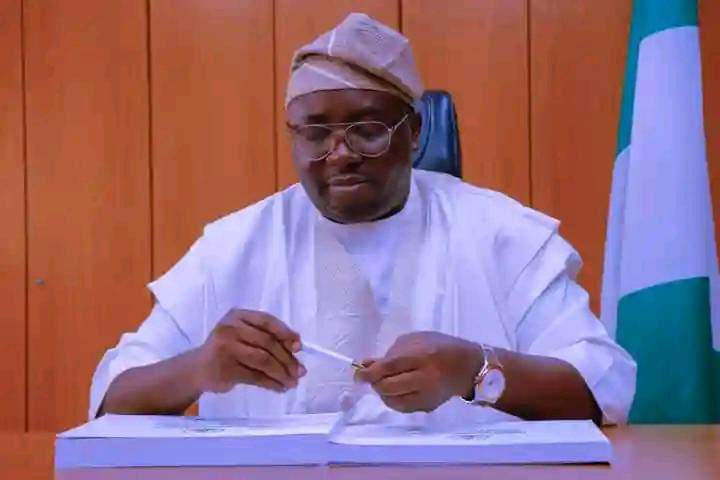- Safiu Kehinde
The Federal Government has unveiled plan to deploy solar-powered irrigation system to farmers across Nigeria.
This was disclosed in a statement issued on Tuesday by the Minsitry of Power.
According to the statement, the Minister of Power, made the disclosure while hosting delegates from the Global Energy Alliance for People and Planet (GEAPP) on Monday.
Adelabu in his address disclosed that the deployment of the solar-powered irrigation system is part of the government’s efforts towards achieving the Mission 300 objectives which aims to provide electricity to 300 million Africans by 2030.
The Minister said as a signatory to Mission 300 in Dar es Salaam, Tanzania in January this year and having presented its National Energy Compact, Nigeria will revolutionized, through the provision of the non-grid solar powered energy, agriculture and other small scale businesses, at the rural level in achieving energy access to the large population of rural dwellers.
He called on the foreign partners to provide technical assistance to Nigeria in the implementation of the mission 300.
“We so much need the technical support for us to be able to monitor and track different parts and locations in the country, so that at any time, we can measure our achievements for data collection.
“Even though we have made significant progress in the implementation of this policy, there are lots of gaps to be filled so that it will not just be rhetorics. We must fully implement it”. Adelabu said.
Explaining how the program can make effective impact on energy access to the rural areas, Power Minister told the delegation that “in the area of agriculture for instance, we want to focus on irrigation to our rural farmers.
“In this case, we want to deploy thousands of solar power pumps to help rural farmers to boost productivity.
“We will also follow with the deployment of solar powered storage facilities because, when they produce more than what can be consumed, storage becomes a challenge as the products go bad quickly.
“We want to be able to achieve this for our rural farmers, using the non- grid method to power processors, planters, harvesters and other farm implements.
“In the same way, we will provide solar powered access to small scale businesses in our rural areas such as patent medicine stores and others that require energy.
“Through this, we move them to clean energy and enhance their productive capabilities”.
Adelabu affirmed that Nigeria is moving in the right direction in the implementation of the policy in partnership with the Ministry of Finance.
He however still sought for partnership that can drive the implementation faster.
“We have established key pillars of the compact. About two months ago, we held our first stakeholders meeting.
“We are taking energy access to a lot of rural communities in their primary health care programmes. We have secured funding from India to achieve these.
“We are enhancing grid extension and expansion through programmes such as the Presidential Power Initiative (PPI), which has generated additional 700 megawatts for us, we are moving to the first phase of the Siemens project.
“This will also add additional 7000 megawatts to our generation and also stabilise it.
“We are also moving towards achieving the cost reflective tariff.
“Our metering initiative is going on so that our consumers can get the accurate value of their consumption as the estimated billing is a rip off on them.
“These and so many other activities have been embarked upon towards achieving mission 300 by 2030.
“But, just as I said, we need your support, your cooperation and partnership for us to move ahead”, Adelabu added.
In her remark, GEAPP African Director and Leader of Delegation, Labna Bhyani commended the Minister for what the Nigerian Government has achieved within the time the Minister assumed office, particularly his efforts towards achieving the Mission 300 target.
She said the organization is impressed with Nigeria’s progress in policy reforms, grid, and off-grid programmes.
GEAPP pledged to provide technical assistance to support Nigeria’s Mission 300 initiatives, particularly in monitoring and tracking progress
“Our mission here is to get a first hand information on how you are progressing on the programme and even though we do not give loan like the World Bank and the African Development Bank, as we are just philanthropic, we will provide assistance where we feel we need to, to help you provide clean energy to your people.
“We are really impressed with what we have heard from you.
“You have made a significant progress in your policy reforms such as in your grid and off grid programmes.
“It is important for us to get involved in the area of technical assistance that you have mentioned and I think we can provide collaboration and partnership in that area”, Bhayani said.


